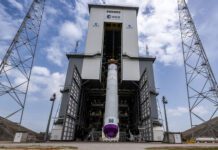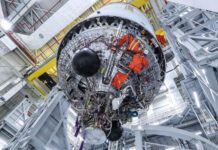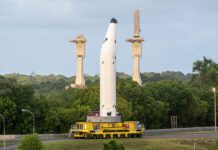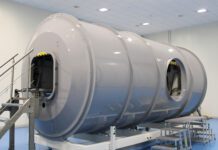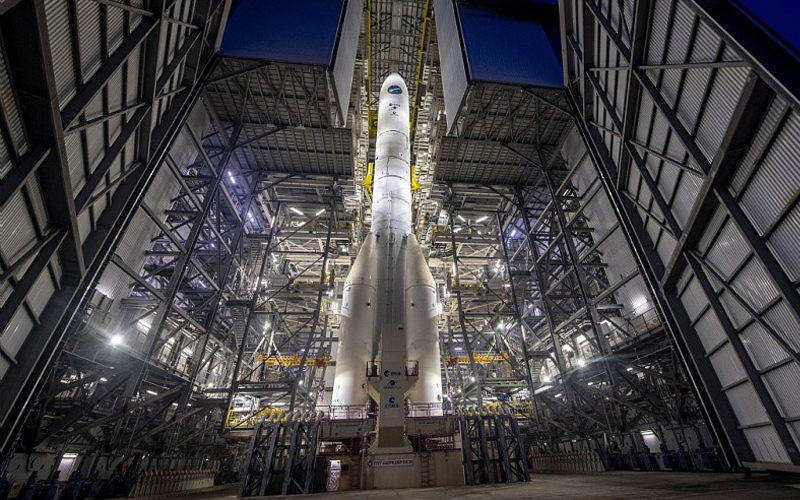
European Space Agency director general Josef Aschbacher has announced that Ariane 6 will be launched for the first time between 15 June and 31 July 2024. In addition to a specific timeframe for the rocket’s debut, Ariane 6 task force officials also outlined the timeline of expected milestones leading up to the flight.
ESA had declined to comment on a possible timeline for the maiden flight of Ariane 6 until a hot fire test of the rocket’s core stage was completed. That milestone finally occurred on 23 November, with the stage’s Vulcain 2.1 engine firing mostly without incident for 426 seconds. Although the most important testing milestones have now been completed, two additional tests are still to come.
On 7 December, a second stage test will be conducted at the DLR facilities in Lampoldshausen, Germany. Then, on 15 December, a core stage test will be conducted on the Ariane 6 launch pad in French Guiana. The aim of the two tests is to demonstrate the performance margins of the stages in degraded conditions.
The major components of the first Ariane 6 launch vehicle will be sent to French Guiana between late January and early February 2024. The components will then be assembled, and the completed launch vehicle will be transported to the launch pad in late April. During this time, the Ariane 6 qualification review will officially be concluded, certifying the vehicle fit for flight. This will be the last major milestone before launch.
If every one of those milestones is completed without incident, the earliest possible launch date will be 15 June. ESA is, however, confident that even if there is a hiccup or two, a “risk margin” of 90 days is sufficient, ensuring a maiden flight no later than 31 July.
The story behind the early shutdown of the core stage
In addition to revealing the road to the maiden flight of Ariane 6, task force officials also revealed the reason behind the early shutdown of the Vulcain 2.1 engine during the 23 November long-duration hot fire test. The engine had been expected to fire for a total of 470 seconds. However, the test ultimately lasted for 426 seconds.
According to ESA director of space transportation Toni Tolker-Nielsen, the cause of the early shutdown was one sensor and conservatively set fuel limit parameters.
“One of the sensors, based on this very narrow threshold, was declared invalid, explained Tolker-Nielsen. “In order to protect the launchpad, we had a logic that we cut off the engine.”
Officials did, however, clarify that this issue would not present during actual flight conditions.
“This is really not an issue whatsoever on the performance because this is linked to the test on the ground. This early switch-off would not happen in flight,” said director general Aschbacher. “We are very confident that the test was a full success.”

